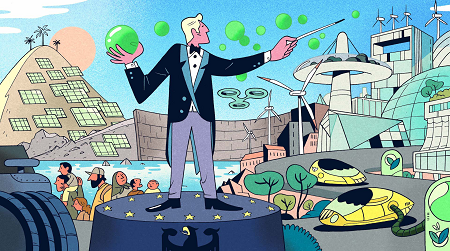Green hydrogen in Tunisia: A new mechanism of plunder and exploitation
Tunisia`s Green Hydrogen Strategy, developed with Germany`s GIZ, plans to export over 6 million tonnes to Europe by 2050. While praised, it overlooks the significant costs to Tunisia`s vital sectors, prioritizing EU needs over local interests.
In September 2023, the Tunisian Ministry of Industry, Energy and Mines issued the National Strategy for the Development of Green Hydrogen and its Derivatives in Tunisia, which it had developed in partnership with the German Agency for International Cooperation (GIZ). The National Strategy includes an action plan for exporting more than 6 million tonnes of green hydrogen to Europe by 2050. This plan, along with a number of statements by Tunisian officials in charge of the country’s energy transition, has been met with a number of positive articles, which hail it as a potential boost for the country’s development. However, the Strategy’s aim of meeting the European Union’s (EU’s) needs and complying with its dictates will undoubtedly come at a great cost to a number of important sectors in Tunisia – a fact that seems to have been ignored in the general applause the Strategy has received. Against this background, the present article, developed by the Working Group for Energy Democracy in Tunisia, seeks to unveil elements of this major project that have previously remained undiscussed.
See the full report
Illustration by Othman Selmi/www.behance.net/othmanselmi.














